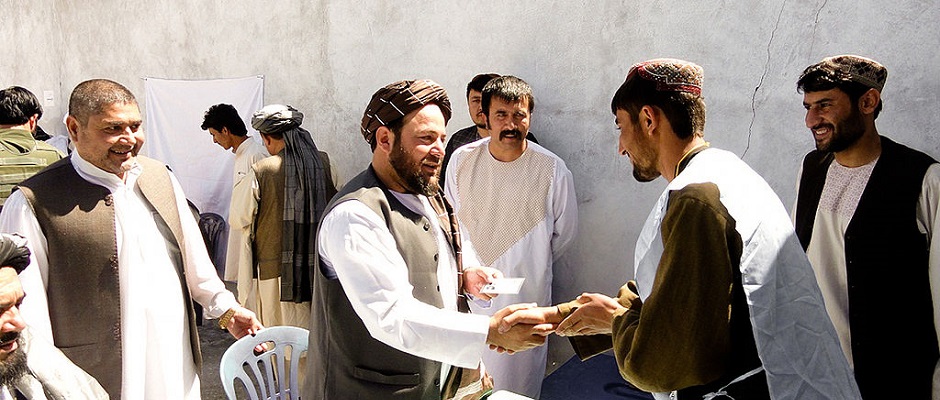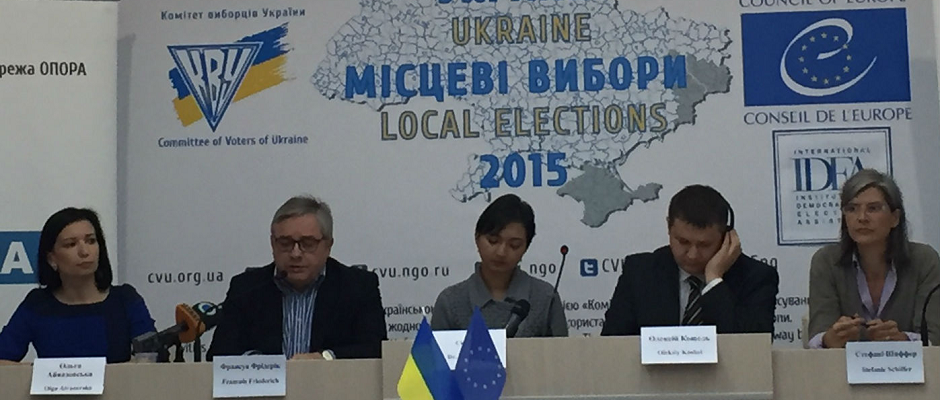
To discuss the issue of conflict and whether decentralization is a means to reduce conflicts, the UN Development Program (UNDP), the Local Public Sector Alliance (LPSA) and the Development Partners Network on Decentralization and Local Governance’ (DeLoG) jointly organized a webinar on December 14, 2021, at 01:00 pm CET.
The webinar was part of the Local Public Sector Alliance’s global webinar series on Decentralization and Local Development around the World. The series of knowledge-sharing events on Decentralization and Local Development in Sub-Saharan Africa was organized in collaboration with the World Bank Subnational Governance and Decentralization Global Solutions Group, UNDP, UNCDF, and several other global partners, from December 6-16, 2021.
Background
Decentralization is often included in peace agreements to promote peace and address local needs. According to the Local Public Sector Alliance, no comparative assessment of decentralization and localization in countries in Sub-Sahara Africa has been conducted since the early 2000s. This webinar addressed whether these objectives translate into practice and decentralization can contribute to stability and peace.
The webinar revolved around several important questions, such as:
- Is decentralization a road to peace in Africa? What is the role of decentralization and local governance in reducing or preventing conflicts?
- Decentralization is often put into peace agreements but does it contribute to the stability it is thought to provide and does it promote peace?
- Where does this assumption come from and is there any evidence that supports the assumption?
- Are the needs and participation of youth better ensured within a decentralized structure and administration?
Report
This webinar introduced the audience to different contexts of decentralization efforts in Sub-Sahara Africa by bringing together the expertise of scholars working in the field. The speakers presented the theoretical links between decentralization and the promotion of peace and highlighted local drivers and mechanisms leading to the varying success of decentralization efforts. The countries in the focus of the discussion were Somalia, South Sudan, the Central African Republic, and Mozambique. The session was moderated by Dr. Roselyn Akombe, Teamleader for Governance and Peacebuilding, UNDP RSCA.
Jannel B. Galvanek and Katharina Jautz (Berghof Foundation) kicked off the webinar by addressing the nexus between decentralization and sustaining peace. They identified two potential theoretical mechanisms: The “optimistic theory of change”, leading from decentralization to increased local ownerships and effectiveness of peace processes, and the “pessimistic theory of change”, leading from decentralization to increasing grievances and a system that blocks transparency and oversight. They concluded that the success of decentralization efforts depends strongly on the context. For instance, local governance in Somalia often lacks communication channels, such as community dialogue between elders and the youth. Therefore, the Berghof Foundation aims to actively link formal and informal structures to improve communication and strengthen infrastructures for peace.
Prof. Dr. Julia Duany shared her expertise on peace agreements and decentralization in South Sudan. She pointed out that South Sudan has a long history of self-governance. In South Sudan, one central issue is the implementation of security arrangements defined in the peace agreements, thus, the formation of united armed forces. Moreover, traditional mechanisms for peace processes have been overlooked for a long time. Now, it is crucial to combine conventional peace processes with grassroots peace movements and existing local mechanisms. She concluded that women and youth groups will play a central role in these processes.
Dr. Decky Kabongi contributed with his knowledge of peace agreements and decentralization in the regional context of the Central African Republic and the Democratic Republic of Congo. He emphasized that around two-thirds of African countries have some form of decentralization policies or promotion of local governance. However, it is important to see how different perspectives and local drivers change the implementation of these policies. For instance, there is an elementary difference between countries emerging from a conflict that introduce decentralization policies as part of the peace process and countries that have a strong culture of local governance. Other relevant aspects for the success of decentralization and strong local governance are the rapid urbanization and aid dependency of certain countries – with the financial situation even more strained due to the COVID-19 pandemic. He summarized that local groups are often insufficiently involved and there are not enough studies on how to raise funds locally and improve the financial capacity on a local level.
Cândida F. E. Moiane Zonjo and Dr. Adriano Nuvunga addressed peace agreements and decentralization in Mozambique. Decentralization has been promoted in the peace agreements in Mozambique after the civil war in 1992, however, the impact on peace and prosperity has been limited. Cândida F. E. Moiane Zonjo criticized that the good intentions of the signees have not yet been translated into the constitution or local law. Increasing the transparency and participation of the population beyond the electoral processes should be a key target of decentralization efforts in Mozambique. Dr. Adriano Nuvunga underlined that decentralization has the potential to fill the gap between the macro-level and local groups by legitimating the state through the provision of citizen services. However, there is a trend of re-centralization as the government fears losing municipalities to the political opposition. One key issue of the highly centralized economy in Mozambique is the extraction of resources from the municipalities without the adequate return of revenues or services to the citizens. Hence, some of the resource-richest regions are still the most underdeveloped. Consequently, this creates a disenfranchised youth that can potentially become susceptive to recruitment strategies of armed groups. He concluded that decentralization in Mozambique is not properly implemented and does not live up to its full potential.
To wrap up the webinar, a discussion and Q&A between the panelists and audience was moderated by Dr. Roselyn Akombe. In sum, the webinar highlighted different challenges in the implementation process of decentralization and local governance to promote peace. A key takeaway is the lack of communication between the macro-level and the local level as well as insufficient involvement of women and youth groups. Overall, the panelists stressed the importance of democratic consolidation through decentralization and called for better implementation of local governance infrastructures.
To watch the webinar on “Decentralization and Localization in Sub-Saharan Africa: Is Decentralization a Road to Peace in Africa?”, please follow the link to each panelist:
- Session introduction: Dr. Roselyn Akombe, Teamleader for Governance and Peacebuilding, UNDP RSCA
- The nexus between decentralization and sustaining peace: Jannel B. Galvanek, Head of the Sub-Saharan Africa Unit, Berghof Foundation, Katharina Jautz, Project Manager in the Yemen Unit, Berghof Foundation
- Discussant: Peace agreements and decentralization in South Sudan, Prof Dr Julia Duany, Expert in Peace, Gender and Federalism, South Sudan
- Discussant: Peace agreements and decentralization in Central African Republic, Dr Decky Kabongi, Researcher on the security and development nexus in countries of the Great Lakes Region
- Discussant: Peace agreements and decentralization in Mozambique: Cândida F. E. Moiane Zonjo & Dr Adriano Nuvunga, Director of the Center for Democracy and Development (CDD) & Steering Committee of the Mozambique Human Rights Defenders Network (RMDDH)
To watch other parts of the knowledge sharing series on Decentralization and Localization in Sub-Sahara Africa, please follow this link.
This blog post was prepared by Annalena Podzun and originally appeared on the site of DeloG (the ‘Development Partners Network on Decentralization and Local Governance’) .
Image attribution: Peace by Nick Youngson CC BY-SA 3.0 Alpha Stock Images.




